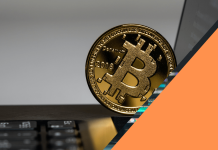23 Cryptocurrency Exchanges in South Korea Accepted To Self-Regulate, 10 Opted-Out
- South Korea intensifies its move for crypto exchange self-regulation.
- Only 23 out of the 33 crypto exchanges accepted to self-regulate, 10 declined.
South Korea: As South Korean banks have refused to open new virtual accounts for most cryptocurrency exchanges since after the operation of the real-name system launched by the South Korean government last January, the need for self-regulation for crypto exchanges in South Korea is increasing. The virtual accounts were only opened the largest cryptocurrency exchanges in the country: Coinone, Upbit, Bithumb, and Korbit.
An association of crypto exchanges in South Korea, the Korean Blockchain Industry Association – consisting of 33 crypto exchanges, stated that it is reviewing whether its participants are abiding by the set of self-regulatory cryptocurrency rules established last year December. However, a local media revealed that out of the 33 exchanges undergoing the review; 23 agreed with the self-regulation while 10 refused, according to local media.
The chairman of the Korean Blockchain Industry Association’s self-regulation committee, Jeon Jae-jin, said:
“We will focus on establishing the safety and transparency of the exchanges.”
The local media noted:
“The association predicted [that the] self-regulatory review will be smooth.”
The local media added that the association asked its 33-member exchanges to undergo a self-regulatory review. Only 23 of the members agreed with the self-regulation; while the remaining 10 exchanges declined and were thrown out of the association. Among the 10 who refused was Coinnest, an exchange whose CEO was recently apprehended.
As of press time, the 23 exchanges who agreed are Korea Encryption, Money Exchange, and Huobi Korea, Coinlink, Scoin, Okcoin Korea, Whalex, Zeniex, Kairex, Kcx Exchange, Komid, Korbit, Coinone, Glosfer, Nexcoin, Neoframe, Upbit, Bithumb, Gopax, Coinzest, Coinplug, Crypto Company, Dexko.
ZDNet Korea stated that the association is collaborating with a law office to formulate the self-regulatory standards for cryptocurrency exchanges, which are expected to be “released in a few weeks.”
According to Seoul Finance:
“The exchanges expect that this self-regulatory review will be an opportunity to demonstrate the stability of the exchanges.”
The publication stated that if exchanges comply with self-regulation, Korean Blockchain Industry Association and associate crypto exchanges have plans to entreat banks to issue new virtual accounts for both small and medium-sized exchanges again.
Tell us your view about the 23 exchanges who opted-in to self-regulation and the 10 who declined in the comment box below.








